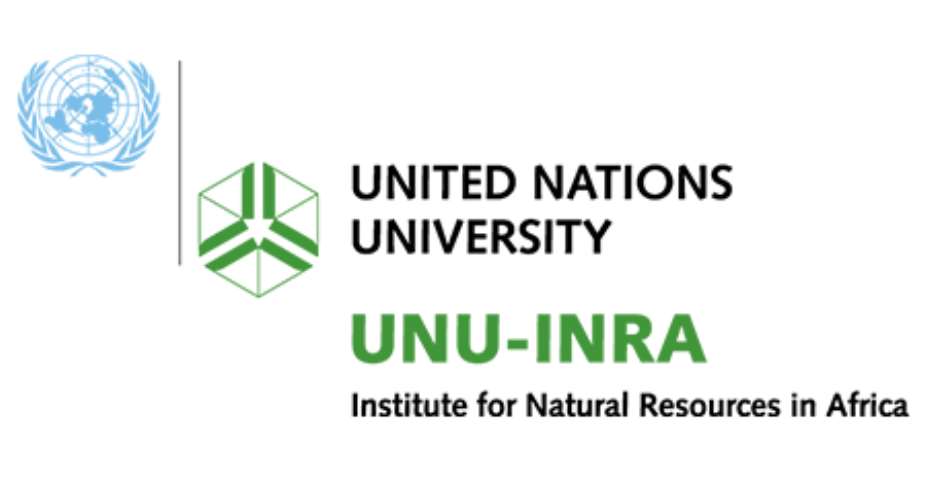Accra, May 6, GNA - Participants at a just ended science reporting workshop have called for consistent media campaigns on environmental issues in African countries till there was a change in public attitudes.
The participants including media personnel, communication officers and research scientists, however, agreed that effective science communication required more collaboration among all stakeholders.
During a two-day workshop that brought together 50 participants from Ghana, Liberia, Nigeria, Rwanda and Togo, the stakeholders said practitioners needed to communicate research findings to policy makers and the public in a clear, compelling, non-technical and inclusive language.
The United Nations University Institute for Natural Resources in Africa (UNU-INRA), in collaboration with the United Nations University Maastricht Economic and Social Research Institute on Innovation and Technology (UNU-MERIT), Netherlands, and the United Nations Information Centre (UNIC) in Accra, organized the workshop to help bridge the gap between science communication and science journalism.
The workshop was held under the theme: 'Reach & Turn', with the purpose of bringing the various categories of participants together and to discuss better ways of communicating science communication and science journalism better.
In his welcoming address, Dr. Elias T. Ayuk, Director of UNU-INRA, urged researchers not to make communication an afterthought of research projects but factor it rights from the beginning of the processes.
'Involving communication officers at the inception of research projects is very important as this will give them the opportunity to understand projects better and work with researchers to share information on the project throughout the research cycle'.
He also urged researchers to consider policy makers and the general public as part of the target audience for their research activities and put findings in formats that were easily accessible to these audiences.
Mr Diego Salama and Mr Howard Hudson, resource persons advised the participants to use different communication products such as policy briefs, factsheets, blogs and channels like the social media platforms to communicate key research findings to non-expert public.
The communication officers and journalists were also asked to take advantage of the new media landscape to widely disseminate research findings to the benefit of the public.
Ms Ama Kudom-Agyemang, a Communication Consultant, urged journalists 'to hit more on health implications of the environmental choices' that were made, to enable members of the society to appreciate and make the right choices.
The participants discussed the importance of citizen journalism, which had to do with reporting of issues or news events by members of the public using various media platforms.
The workshop highlighted how the concept of citizen journalism could also be used especially by researchers to share information on research activities with journalists and the public.
The participants also discussed the principles of advocacy, with focus on environmental advocacy.
Dr Timothy Khan Aikins, a researcher from the University for Development Studies in Tamale, said: 'Now, I will start thinking about how to clearly communicate my research findings in simple terms to the benefit of the public and I hope to share this experience with my colleagues at work'.
Presentations at the workshop highlighted on how best to write, pitch and present research information to non-scientists.
UNU-INRA's mandate is to contribute to the sustainable management of Africa's natural resources through research, capacity development, policy advice and dissemination.
The Institute is one of the 14 Research and Training Centres/ Programmes (RTC/Ps) that constitute the United Nations University's (UNU) worldwide network.
UNU-INRA operates out of its main office at the University of Ghana campus, and also carries out some of its major activities through operating units (OUs) in five other African countries, namely Cameroon, Ivory Coast, Namibia, Senegal, and Zambia. Each of these OUs focuses on specific areas of natural resources management.
GNA
By Lydia Asamoah, GNA





 Lay KPMG audit report on SML-GRA contract before Parliament – Isaac Adongo tells...
Lay KPMG audit report on SML-GRA contract before Parliament – Isaac Adongo tells...
 Supervisor remanded for stabbing businessman with broken bottle and screwdriver
Supervisor remanded for stabbing businessman with broken bottle and screwdriver
 NDC watching EC and NPP closely on Returning Officer recruitment — Omane Boamah
NDC watching EC and NPP closely on Returning Officer recruitment — Omane Boamah
 Your decision to contest for president again is pathetic – Annoh-Dompreh blasts ...
Your decision to contest for president again is pathetic – Annoh-Dompreh blasts ...
 Election 2024: Security agencies ready to keep peace and secure the country — IG...
Election 2024: Security agencies ready to keep peace and secure the country — IG...
 People no longer place value in public basic schools; new uniforms, painting wil...
People no longer place value in public basic schools; new uniforms, painting wil...
 'Comedian' Paul Adom Otchere needs help – Sulemana Braimah
'Comedian' Paul Adom Otchere needs help – Sulemana Braimah
 Ejisu by-election: Only 33% of voters can be swayed by inducement — Global InfoA...
Ejisu by-election: Only 33% of voters can be swayed by inducement — Global InfoA...
 Minority will expose the beneficial owners of SML, recover funds paid to company...
Minority will expose the beneficial owners of SML, recover funds paid to company...
 Prof. Opoku-Agyemang has ‘decapitated’ the NPP’s strategies; don’t take them ser...
Prof. Opoku-Agyemang has ‘decapitated’ the NPP’s strategies; don’t take them ser...
